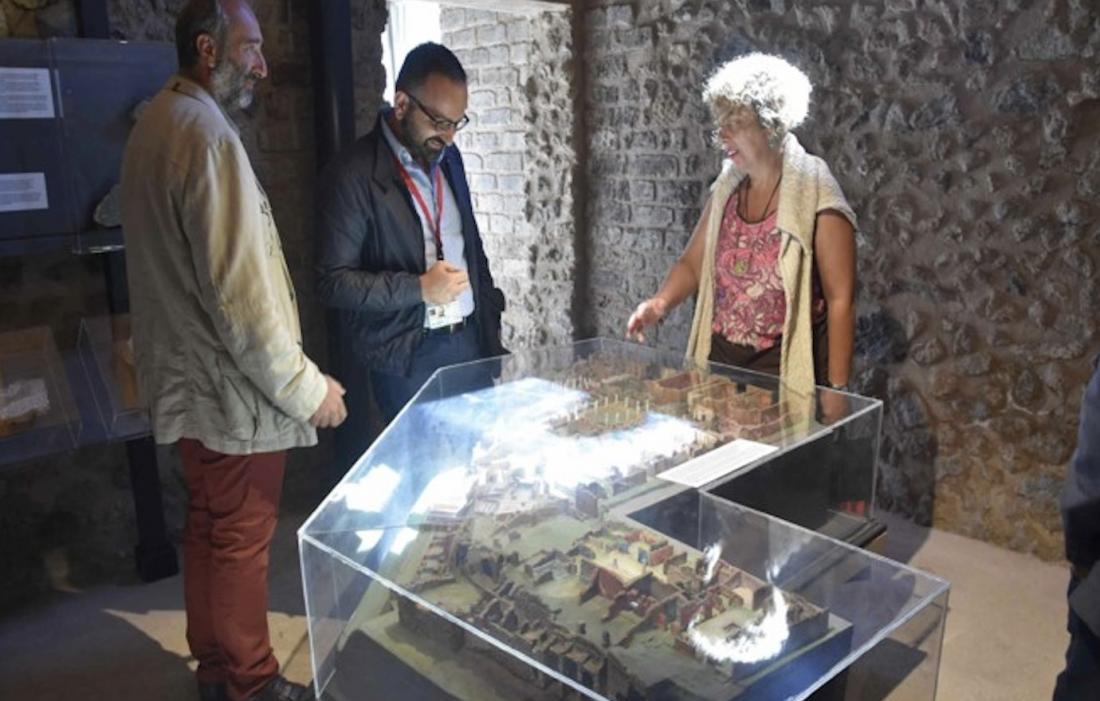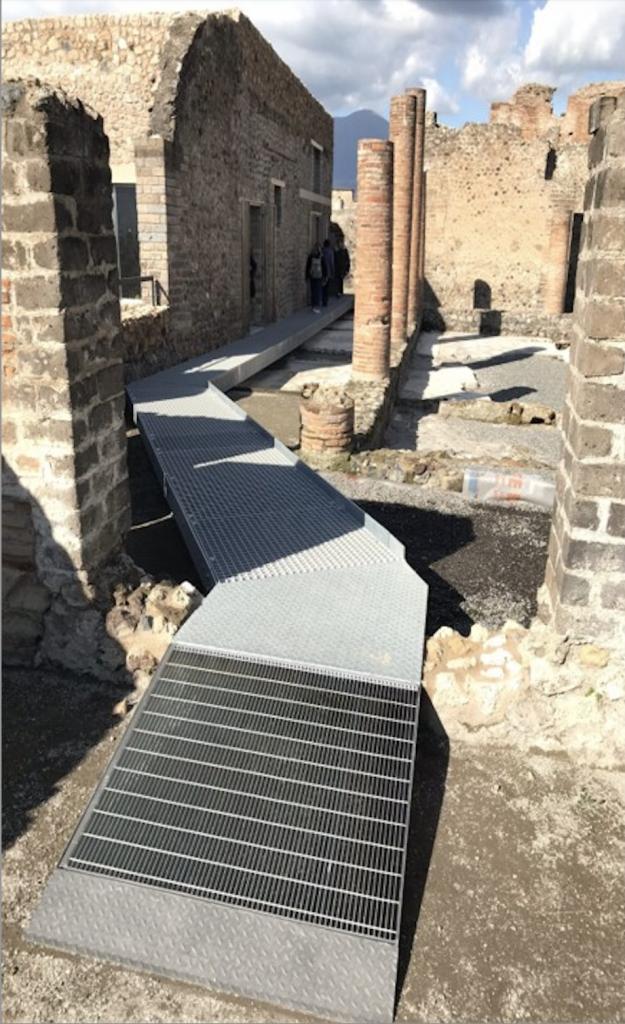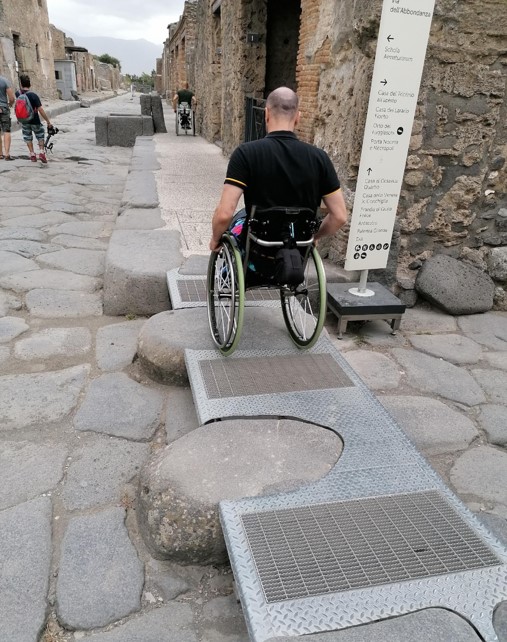CROSSDEV: “Accessibility is a crucial part of any responsible and sustainable tourism policy and strategy”

Accessibility is essential to make sustainable tourism available for all travellers and let everyone enjoy agreeable cultural places. Furthermore, accessible environments and services contribute to improving the quality of tourism products, thus increasing the overall competitiveness of tourism destinations. Accessibility, therefore, is a crucial part of any responsible and sustainable tourism policy and strategy.
For this core value of accessibility, the Ministry of Culture - partner of the CROSSDEV project - recently organised the webinar "Accessibility, culture and tourism". Aimed at all project’s partners, the webinar was held on 14 June 2022.
During the webinar, speakers of different institutions presented accessibility experiences in a number of tourist fields, from cultural routes to tourism beyond barriers.
A representative of the Molise Region, in their capacity of coordinators of the Tourism4all project, funded by the Interreg Italy-Croatia Programme, presented the results and the main outputs of the project. It aims at developing and promoting a wide cross-border network of accessible tourist destinations, including natural and cultural sites, urban spaces and beaches, in order to reduce tourist seasonality and promote social inclusion through the exchange of good practice, evaluation methods and joint services to promote tourism for the benefit of people with reduced mobility and people with special needs, such as people with disabilities and the elderly. In fact, accessible tourism refers to the provision of a tourism experience which does not put customers in a ‘disability’ situation regardless of the activity limitations or impairments they may present. Indeed, it is inclusive of all people with access needs: people with disabilities but also all other people who may benefit from accessible infrastructures, such as elderly people, parents with small children or people carrying heavy luggages.
Also, the European Network for Accessible Tourism (ENAT) refers to Accessible Tourism as the set of ‘services and facilities (such as physical environment, transportation, information, communication) which enable persons with special access needs, either permanent or temporary, to enjoy a holiday and leisure time with no particular barrier or problem.’
During the webinar, the Tourism4all shared its recently produced document “Recommendations for policymakers and/or Sector operators”, created to enable destinations reach the accessibility of the complete value chain.



The Archeological Park of Pompeii presented their “Pompeii for all” project, aimed at spreading accessibility on an urban scale, making accessible paths all along the Park. As for pictures, for instance, a narrative voice leads users to discover frescos through audio and visual language, overcoming various sensory limitations. Furthermore, in the next future, the “Museum for all” project will make Villa of Poppea, Villas of Stabia, Quisisana Palace and Boscoreale Antiquarium accessible to people with intellectual disabilities and, through the action “Pompeii in the hands”, it will enable a multi-sensory fruition of the Archaeological Park.
The point of view of disabled people on accessibility to culture and tourism has been outlined by the Mollare Mai (Never Give Up) Association A.S.D, founded in 2017, which helps people with disabilities - "paraplegic, tetraplegic, blind and victims of road accidents" - in the education of the best use of the wheelchair, in motor activities and to ensure that they can be autonomous in addressing the architectural barriers of our society. In collaboration with The Via Francigena Pugliese Association, which studied and mapped Via Francigena salentina and promotes several cultural initiatives for the enhancement of this cultural Itinerary, Mollare Mai Association aims at a " Via Francigena for all promotion strategy”, building a model of the best practice of the Southern Via Francigena providing routes with infrastructures and facilities, suitable transport for all users, organising exhibitions, attractions and all tourist activities, accessible to anybody. Together they want a rich system of emotional, economic, and social resources that can transform the Salento stretch of the Via Francigena into a “complex cultural item”.
Overall, this CROSSDEV voyage through different ways to promote accessibility to the cultural and tourist sites for all people has been yet another interesting activity towards a better approach to the tourism industry, and inspired a new vision of tourists as citizens of the world, taking care of each other, to create, all together, a better future.
Keep in touch with CROSSDEV: follow us on Twitter and Instagram!









